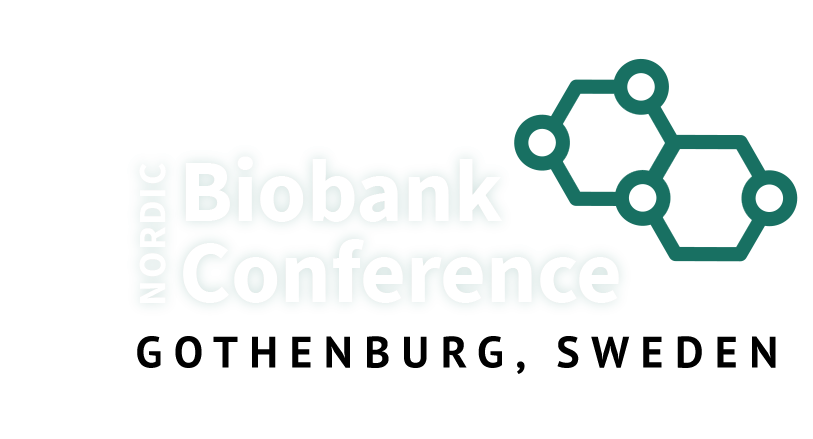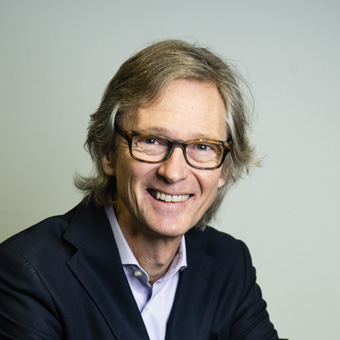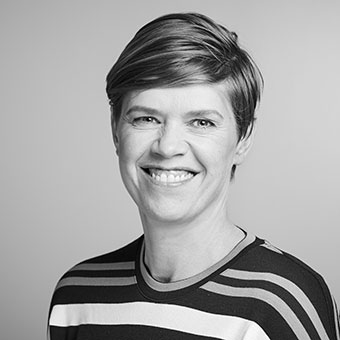

Download the conference program book here >> (pdf)
8.00–8.45 – Room: Exhibition Hall F
The conference registration desk is located inside the Exhibition Hall F, second floor, and is open during the hours of the conference.
8.45–9.10 – Room: F4+F5
Opening of the Nordic Biobank Conference.
Linda Paulson, Chair of Steering Committe, Head of Biobank West, Sahlgrenska University Hospital, Sweden.
Lasse Boding, Member of Steering Committe, Head of Coordinating Centre, Danish National Biobank. Statens Serum Institut, Denmark.
Representatives from Region Västra Götaland and City of Gothenburg. Annika Tännström, President of the Regional Council and Håkan Eriksson, Deputy Lord Mayor.
Sonja Eaker Fält, Chair of National Advisory Board Biobank Sweden, Sweden.
9.10–9.50 – Room: F4+F5
Professor Aarno Palotie, FinnGen
FinnGen is a large public-private partnership aiming to collect and analyse genome and health data from 500,000 Finnish biobank participants by 2023. FinnGen aims on one hand to provide novel medically and therapeutically relevant insights but also construct a world-class resource that can be applied for future studies.
As of May 2022, the Finnish biobanks have collected DNA samples from more than 530 000 possible FinnGen participants. From these, the FinnGen study produces comprehensive genome variant data using genome-wide genotyping and imputation that is based on a population specific sequencing imputation backbone. Using this strategy, variants can be reliably imputed down to very low frequency due to the strong bottleneck effect which the Finnish population has experienced.
The study utilizes the extensive longitudinal health register data available on all Finns that record hospital and outpatient visits, prescription drug purchases, causes of death and many others. These registers cover the entire lifespan and have been digitalized for decades. This data provides unique opportunities to study disease associations (GWAS and PheWAS), disease trajectories and comorbidities.
The latest data freeze from April 2022 consists of over 392 000 individuals. The study has so far identified over 400 new disease associated loci where the associated variant is enriched in the Finnish population, including over 150 damaging coding variants. These provide potential for further functional studies and new insight in disease mechanisms. FinnGen releases summary level results for the whole research community twice a year.
The study currently involves Finnish biobanks, University Hospitals and their respective Universities, the Finnish Institute of Health and Welfare (THL), the Finnish Red Cross Blood Service and twelve pharmaceutical companies. www.finngen.fi/en
Professor Aarno Palotie, MD, PhD is the research director of the Human Genomics program at FIMM-HiLife. He is also a faculty member at the Center for Human Genome Research at the Massachusetts General Hospital in Boston and associate member of the Broad Institute of MIT and Harvard. He has a long track record in human disease genetics. He has hold professorships and group leader positions at the University of Helsinki, UCLA and Wellcome Trust Sanger Institute. He has also been the director of the Finnish Genome Center and Laboratory of Molecular Genetics in the Helsinki University Hospital. He is the Scientific Director of the large FinnGen project that combines the genome and national health record data from 500 000 Finnish participants.

9.50–10.30 – Room: F4+F5
Hilma Holm, Head of Cardiovascular at deCODE genetics
Cardiovascular discoveries and Covid at deCODE genetics
DeCODE genetics, a subsidiary of Amgen Inc., is a genetics research entity that was founded by Kári Stefánsson in Iceland in 1996. Leveraging the participation of more than half of the Icelandic population, detailed genealogical information on Icelanders in the Book of Icelanders, and large international collaborations, deCODE has contributed substantially to our current understanding of the human genome. Scientists at deCODE have discovered major characteristics of mutational processes that generate sequence diversity in the human genome, information that is of paramount importance both to medical genetics and to evolutionary studies. Scientists at deCODE have also discovered key genetic risk factors for rare and common diseases ranging from cardiovascular disease to cancer, and have used these findings as tools to further our understanding of disease pathophysiology, including causality.
In 2016, the deCODE Health Study was launched, a prospective cohort study in Iceland with extensive phenotypic and genotypic information, facilitating further discoveries on the relationship between phenotypes and genotypes, including the identification of new syndromes. Following the initiation of the Covid pandemic, the deCODE Health Study was leveraged to investigate the health consequences of SARS-CoV-2 infection. In her talk, Hilma Hólm will provide examples of discoveries at deCODE relating to cardiovascular diseases and discuss the deCODE post-Covid study.
Hilma Holm, MD, is the head of the Cardiovascular Research Department at deCODE genetics in Reykjavik, Iceland. She is an expert in echocardiology, cardiovascular genetics and population genetics research. She is actively involved in a wide range of genetic cardiovascular research, including on lipids and atherosclerosis, cardiac conduction and arrhythmias, congenital heart disesae, valve disease and heart failure. She also directs the deCODE Health Study, a prospective cohort study in Iceland with extensive phenotypic and genotypic information.

10.30–11.00 – Room: Exhibition Hall F
11.00–12.30 – Room: F4+F5
Stored human biological material suitable for modern molecular analysis in combination with clinical and demographic registries are the most critical resources for research-based translation of advances in molecular biology and advanced technologies into improved human health. The in-depth characterization of human diversity as dictated by variation in the sequences of genomes is now possible on a population-scale. Coupled with longitudinal information about disease risk factors, etiological processes and outcomes, an unparalleled opportunity currently exists to optimize prevention, diagnosis, and treatment of many acute and chronic diseases.
Chair: Lasse Boding, PhD, Head of Coordinating Centre, Danish National Biobank. Statens Serum Institut, Denmark.
11.00-11.30
Bjarke Feenstra, Senior Scientist, Statens Serum Institut, Denmark
Understanding health and disease by leveraging the potential of large national biobanks and health registries.
11.30-12.00
Åke Lernmark, Senior Professor, Lund University, Sweden
The TEDDY study – understanding diabetes in the young by combining big data and biobanking.
12.00-12.15
Minttu Sauramo, Finnish Institute for Health and Welfare, Finland
THL Biobank’s Availability Service utilizes register data for focused responses on researchers’ feasibility studies.
12.15-12.30
Maria Wennberg, PhD, Umeå University, Sweden
The Northern Sweden Health and Disease Study – Prospective blood samples and data from >140 000 individuals in Västerbotten county.
12.30–14.00 – Room: Exhibition Hall F
14.00–15.30 – Room: F3
During the sample quality session, the topics will include sampling techniques and the effect of sampling on sample quality, the impact of sample quality on false findings in research, and how to classify and control for sample quality which is “fit for purpose”.
Chair: Åsa Torinsson Naluai, Associate Professor, Sahlgrenska Academy at University of Gothenburg and Biobank West at Sahlgrenska University Hospital, Sweden
14.00-14.20
Anders Ståhlberg, Professor, Department of Laboratory Medicine, University of Gothenburg, Sweden
Cell-free DNA analysis in blood plasma: preanalytical considerations and clinical applications.
14.20-14.40
Anne Jorunn Vikdal, Quality Manager Biobank Norway and Project Coordinator HUNT Biobank – Norwegian University of Science and Technology, Norway
The Trøndelag Health Study; HUNTing for good sample quality for over 30 years.
14.40-14.50
Christoph Brochhausen, Professor, University Regensburg, Germany
Structural and molecular quality of Tissue samples after 10 years storage under different protocols based on -80°C and liquid nitrogen.
14.50-15.00
Anders Pedersen, PhD, University of Gothenburg, Sweden
NMR as a general tool for assessing serum/plasma sample quality: identify sampling tube, sample integrity and other preanalytical characteristics.
15.00-15.30
Minimizing Sampling Bias – how to make samples usable in the long perspective and to avoid false positive and false negative findings.
Participants:
Anne Jorunn Vikdal, Project coordinator/Biomedical Laboratory Scientist, HUNT Biobank, Quality manager for Biobank Norway
Christoph Brochhausen, Professor University Regensburg, Germany
Anders Pedersen, PhD, University of Gothenburg, Sweden
Anders Ståhlberg, Professor, Department of Laboratory Medicine, University of Gothenburg, Sweden
14.00–15.30 – Room: F4+F5
Biobank research brings a number of ethical and societal challenges such as finding appropriate avenues to inform participants about data and sample uses, involving participants in the research processes, and ensuring that participant trust and stakeholder engagement is maintained. In this session, particular focus will be put on some key ethical considerations in biobanking including and approaches for the ethically and legally robust sharing of data between Nordic countries.
Chair: Isabelle Budin Ljøsne, PhD, Norwegian Institute of Public Health/ Biobank Norway – CS2 ELSI Norway
14.00-14.30
Ann M. Gronowski, PhD, Professor of Pathology & Immunology, and Obstetrics & Gynecology at Washington University School of Medicine in St. Louis, USA
Ethical issues in Biobanking
14.30-15.00
Heidi Beate Bentzen, PhD, Researcher, University of Oslo, Norway
Data sharing between countries
15.00-15.15
Janna Nissen, PhD, Copenhagen Hospital Biobank, Denmark
Experience from information letter sent to 301.363 patients with a sample in The Copenhagen Hospital Biobank.
15.15-15.30
Gesine Richter, University of Kiel, Germany
Secondary research use of personal medical data: Patient attitudes towards data donation.
15.30–16.00 – Room: Exhibition Hall F
16.00–17.30 – Room: F4+F5
This session will address the topic from several angles.
The current pandemic has shown that established biobanks may play a new and crucial role as an invaluable clinical platform for contingency studies of a new and life-threatening disease where valid prospective, population-based research is pivotal. We see an outline of a next generation biobanking contributing more directly and immediate to clinical translation of research.
Biobanks struggle with incomplete technical solutions and huge costs for automated storage at ultralow temperatures. Will new technologies markedly change the handling of biobank samples? Is Room Temperature Samples Storage (RTSS) the future solutions?
Chair: Anne Jorunn Vikdal, Project Coordinator/Biomedical Laboratory Scientist, HUNT Biobank, Norwegian University of Science and Technology, Quality Manager, Biobank Norway, Norway
16.00-16.30
Bart Wilkowski, PhD, IT Section Leader, Danish National Biobank, Statens Serum Institut, Denmark
A decade of challenges with automated storage systems at ultra-low temperatures – are we better off without them?
16.30-17.00
Thomas Illig, Professor, MD, PhD, Scientific Head of Hannover Unified Biobank, Head of Research of the Department of Human Genetics, Medizinische Hochschule Hannover, Germany
Biobanking meets Omics.
17.00-17.15
Christian Stephan, KAIROS – an IQVIA business, Germany
Next Generation Biobanking: The Future of Personalized Medicine.
17.15-17.30
Thorben Seeger, Lifebit Biotech Ltd, United Kingdom
Delivery of Federated Trusted Research Environments for collaborative, secure analysis of distributed clinico-genomic data.
16.00–17.30 – Room: F3
Building up a sustainable biobank infrastructure includes challenges and opportunities. In this session we will discuss different strategies biobanks can adopt towards sustainable biobanking. Examples will be given of public-private partnerships, the creation of new resources to increase the value of the biobank and providing new types of research services. In addition, ways to advertise and present the biobank resources to the large research community will be explored.
Chair: Kaisa Silander, THL Biobank, Research Manager, Finnish Institute for Health and Welfare, Finland
16.00-16.30
Johanna Mäkelä, Director of Research and Service at FINBB, Finland
Fingenious – Your gateway to Finnish Biobanks and Biomedical Research.
16.30-17.00
Kristian Hveem, Professor, Biobank Norway, Norway
Sustainable biobanks – challenges and future perspectives.
17.00-17.15
Linda Paavilainen, Uppsala Biobank, Sweden
It’s Imperative to be Intuitive – How to lower the threshold for access to samples.
17.15-17.30
Niina Eklund, Finnish Institute for Health and Welfare, Finland
High-quality health-research benefits from sustainable biobanking.
18.30–
The conference dinner will take place at Valands festvåning, a grandiose house dating from 1886. The house is located in the middle of the city at the parade street Avenyn. Dinner and entertainment will be provided.
Pre-registration is mandatory.
Address: Valands festvåning, Vasagatan 41, Göteborg